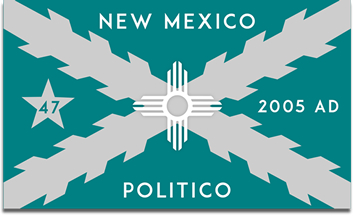We live in a time where patriotism is not as simple as it used to be. Patriotism is such a deceptively difficult concept, and maybe there never was a time in U.S. history when people fully agreed what it meant. Nowadays, it seems that to call yourself “patriotic,” you must be able to check off every box on a list of superficial actions and viewpoints. Said boxes include standing for the national anthem, never criticizing police officers, never criticizing the president, and being a staunch supporter of everything your political party stands for. Even a hint of disagreement of any of the aforementioned superficial points automatically means you’re un-American and unpatriotic, even if you have good reasons to disagree. At least that’s what we’ve seen on social media. Personally, I think patriotism goes deeper. Patriotism is more than standing for the national anthem at a sporting event. It is more than blindly following elected leaders, and it is certainly more than loyalty to a political party. Patriotism is a love for one’s country, and a willingness to sacrifice for it.
Our country lost one of our best when Senator John McCain passed away last Saturday. McCain was not your typical Republican. He wasn’t your typical politician either. He wasn’t afraid to stand up to his own party when he disagreed with the direction they were heading. His literal thumbs down to the GOP’s ideas on the Affordable Care Act repeal sums up his maverick persona. McCain was no Trump yes man. He spoke out against both parties when he felt it was necessary, not for the sake of disagreeing, but to come to an even better solution with both parties’ involvement.
While many of his Republican colleagues do mental gymnastics to justify Trump’s actions, McCain called him out.
“No prior president has ever abased himself more abjectly before a tyrant,” McCain said regarding the disastrous Helsinki summit.
No one understood patriotism better than John McCain. Patriotism means you have to put what is best for the country over what is most beneficial to your political party. Patriotism is understanding that sometimes (or perhaps most of the time), doing the right thing for your country is going to make you unpopular with the people who would rather look out for their own personal interests. Patriotism also means that you have to be critical of your leaders and not accept everything they say at face value. Isn’t that why the U.S. became an independent nation in the first place?
Who do you consider a patriot? Is it those who sit quietly and go along with whatever the popular opinion in the country appears to be? Or is it those who go against the status quo to make society better for future generations? Martin Luther King Jr., Susan B. Anthony, Harriet Tubman, Thomas Paine, and almost everyone from American history who we consider heroes were fighters. They were not going to be beaten down by a broken system or corrupt politicians.
We need more politicians to step up the way McCain did. McCain was a prisoner of war in Vietnam for five long years, fighting for a country he believed in– a country that, at the time, did not even appreciate that sacrifice. Sadly, there are still those who do not understand what it means to be a veteran and a prisoner of war.
The least we can do to honor this hero’s memory is stand up for what is right, even if our leaders are unwilling to do so. We will never have another quite like John McCain, but we can vote for people who have a similar strength of character.
It is easier to agree with the majority and be accepted by your party than to speak out against popular opinion for what is right. When you speak out, you risk being shunned by your party. You risk not getting re-elected. But when you decide to put your party over your people and your re-election over your integrity, you might win an election, but you’ve lost something far more important.

